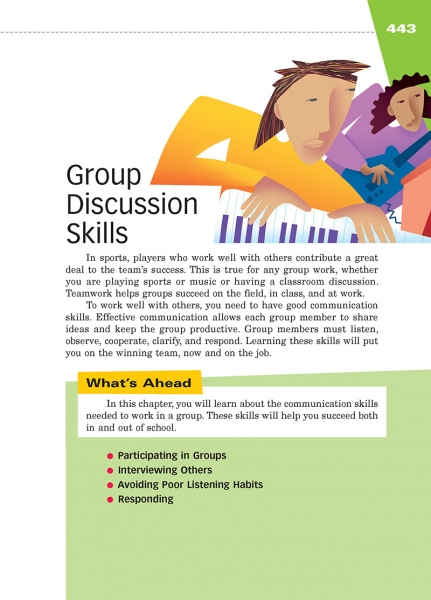Page 443 from

Start-Up Activity
Share with your students a recent Fast Company article about three types of dysfunctional teams:
-
The War Zone is a "team" of hyper-competitive people who are out for themselves and must constantly guard against getting stabbed in the back. (Focused entirely on outcomes and not people)
-
The Love Fest is a "team" of people who just want to get along with each other, whether they get anything accomplished or not. (Focused entirely on people and not outcomes)
-
The Un-Team is a "team" gathered for status updates to report to a top-down manager who makes all of the decisions. (Focused on one person—the boss—with no actual teamwork)
Obviously, none of those examples of teams is desirable. This chapter will help students understand group dynamics, recognizing many roles to play and ways to cooperate and collaborate.
Think About It
“Individual commitment to a group effort—that is what makes a team work, a company work, a society work, a civilization work.”
—Vince Lombardi

Start-Up Activity
Share with your students a recent Fast Company article about three types of dysfunctional teams:
-
The War Zone is a "team" of hyper-competitive people who are out for themselves and must constantly guard against getting stabbed in the back. (Focused entirely on outcomes and not people)
-
The Love Fest is a "team" of people who just want to get along with each other, whether they get anything accomplished or not. (Focused entirely on people and not outcomes)
-
The Un-Team is a "team" gathered for status updates to report to a top-down manager who makes all of the decisions. (Focused on one person—the boss—with no actual teamwork)
Obviously, none of those examples of teams is desirable. This chapter will help students understand group dynamics, recognizing many roles to play and ways to cooperate and collaborate.
Think About It
“Individual commitment to a group effort—that is what makes a team work, a company work, a society work, a civilization work.”
—Vince Lombardi